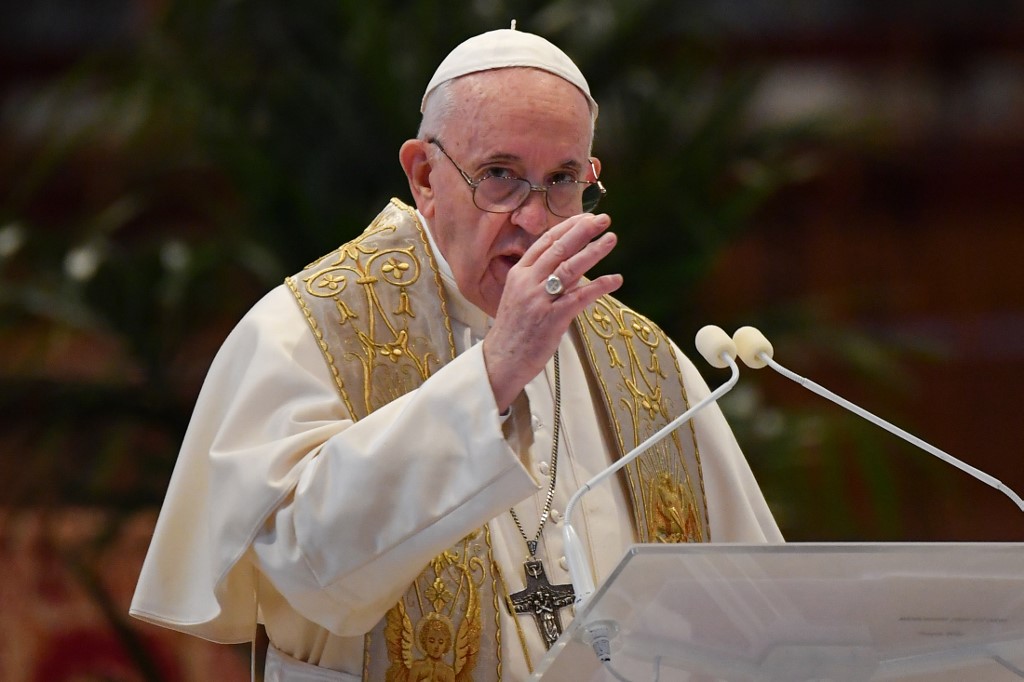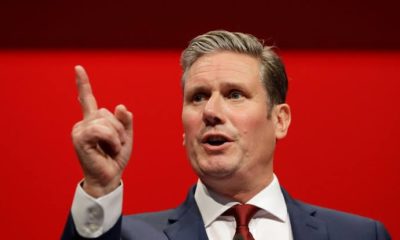International News
UK Gov’t Announces Cobra Meeting After Violent Unrest Across The Country
Downing Street has announced an emergency response meeting for Monday following the arrest of over 150 individuals due to violent unrest in various UK towns and cities over the weekend.
This development comes after Sir Keir Starmer denounced an attack on a hotel housing asylum seekers in Rotherham, vowing that those responsible for the unrest would face “the full force of the law.”
Police were called to violent incidents in Rotherham, Middlesbrough, Bolton, and other locations across the UK on Sunday.
Watch Video: violent Protest And Riots Have Broken Out Across Britain
The Cobra meeting follows some of the most severe rioting seen in the UK in recent years, triggered by the fatal stabbing of three young girls in Southport last week.
In the days following the stabbings, violence has erupted in various parts of England and Northern Ireland, which politicians attribute to misinformation on social media and far-right groups stoking tensions.
Cobra meetings, named after Cabinet Office Briefing Room A in Whitehall, involve a committee of ministers, civil servants, police, intelligence officers, and other relevant officials to address emergency situations.
Monday’s meeting aims to update the government on the weekend’s violence and plan the response for the coming days. It will include relevant ministers and police representatives.
Sources indicate that this meeting is part of ongoing efforts, including a previous meeting between the prime minister and police chiefs last Thursday, and a senior ministers’ meeting on Saturday.
Home Secretary Yvette Cooper highlighted the role of social media in exacerbating the situation, calling it a “rocket booster” for spreading misinformation and organizing violence.
She urged social media companies to take responsibility and ensure that online criminal activity is addressed.
When questioned about Tommy Robinson, the founder of the far-right English Defence League, spreading misinformation online, Home Secretary Yvette Cooper refrained from commenting on specific individuals but emphasized, “if it’s a crime offline, it’s a crime online.”
“You can’t have people inciting and organizing violence from behind a screen without facing consequences,” she told BBC Radio 4’s Today Programme.
In a televised address on Sunday, the prime minister warned those involved in the unrest that they will “regret” their actions.
Sir Keir said: “People in this country have a right to be safe, and yet we’ve seen Muslim communities targeted, attacks on mosques… Other minority communities singled out, Nazi salutes in the street, attacks on the police, wanton violence alongside racist rhetoric, so no, I won’t shy away from calling it what it is: far-right thuggery.”
The Home Office, in a statement, announced the introduction of new measures to enhance protections for mosques, including the option for “rapid security” deployment to quickly restore worship services.
In Rotherham, anti-immigration demonstrators injured at least 10 police officers, with one left unconscious after being struck with planks of wood and sprayed with fire extinguishers, according to South Yorkshire police.
The officer who was knocked unconscious suffered a head injury, and at least two others are suspected to have broken bones.
While hotel employees and residents, including asylum seekers, were “terrified,” no injuries were reported among them.
Mayor of South Yorkshire, Oliver Coppard, noted that there were “240 people” in the hotel during the attack and expressed concern for the asylum seekers, who have already faced violence and persecution in their home countries. “I can’t imagine how terrified they must have been,” he said, confirming that all asylum seekers were safely evacuated.
Home Secretary Yvette Cooper described the violence as “utterly appalling” and assured that police have the government’s full support to take “the strongest action” against those responsible.
At a second hotel in Tamworth, Staffordshire, officers responded to “violent acts of thuggery” on Sunday evening, according to Staffordshire Police.
One officer was injured as individuals threw missiles, smashed windows, and started fires at the site.
David Felton, Assistant Chief Constable of Cleveland Police, reported that 43 people have been arrested following the “staggering” violence. He also confirmed that police will maintain a presence in the area throughout the day.
International News
Russia Launches Deadliest Attack On Ukraine As Ceasefire Hopes Fade
In the early hours of Thursday, Kyiv was rocked by a devastating Russian missile and drone attack, described by Ukrainian officials as one of the most brutal strikes on the capital since Russia’s full-scale invasion began in 2022.
The Ukrainian air force reported that Russia unleashed 70 missiles and 145 drones overnight, targeting several cities across the country.
The barrage on Kyiv left at least nine people dead and over 60 wounded, including six children.
READ ALSO: Suspected Attack: Explosion Strikes Russian Consulate In France
Air raid sirens blared across the capital around 1:00 a.m., warning residents to seek shelter.
Moments later, loud explosions shattered the night, lighting up the sky and shaking buildings. “Phone calls can be heard from under the rubble — the search will continue until we are confident that we have found everyone,” said Interior Minister Igor Klymenko.
He confirmed that two children remained unaccounted for amid the chaos.
Rescue workers scrambled to pull survivors from under collapsed buildings. Fires broke out across multiple apartment blocks, and damage was reported in at least 13 locations.
In one tragic scene in the Sviatoshinsky district, a woman sat on a foldout chair beside a covered body, gently stroking the arm of a loved one killed in the strike.
Nearby, a bloodied woman clutched her dog as a first responder spoke calmly to her, trying to provide comfort amid the destruction.
Prime Minister Denys Shmygal condemned the assault in stark terms. “Cruise and ballistic missiles, drones, air bombs — Russia is cruelly and cynically firing missiles at Ukrainian cities, killing people while the world is making efforts to establish peace,” he wrote on social media.
The attack came just hours after Ukrainian President Volodymyr Zelensky reiterated his call for a ceasefire. “Stopping the killings is the number one task,” Zelensky stated online following a meeting between his aides and Western officials in London.
However, any momentum toward peace appeared to falter. Russian President Vladimir Putin has yet to respond to Zelensky’s offer to halt airstrikes on civilian areas and previously dismissed a joint U.S.-Ukrainian proposal for an unconditional ceasefire.
“Putin demonstrates through his actions, not words, that he does not respect any peace efforts and only wants to continue the war,” said Foreign Minister Andriy Sybiga. Echoing that sentiment, presidential aide Andriy Yermak declared, “Putin shows only a desire to kill.”
Former U.S. President Donald Trump, speaking hours before the attack, claimed a peace deal with Russia was close.
He blamed Zelensky for stalling negotiations by refusing to accept Moscow’s annexation of Crimea, stating that Ukraine’s position “will do nothing but prolong the ‘killing field’.”
Meanwhile, Russian forces expanded their offensive to other regions.
In Kharkiv, at least seven missiles struck a densely populated residential district, according to city mayor Igor Terekhov. Russia’s defense ministry also reported downing 87 Ukrainian drones, including 45 over Crimea.
Earlier this month, Russia’s campaign of aerial terror intensified. A missile strike on the city of Sumy killed at least 35 people, while another attack on Zelensky’s hometown, Kryvyi Rih, claimed 19 lives — nine of them children.
International News
Panic In Istanbul As 6.2-Magnitude Earthquake Hits Marmara Sea
Residents of Istanbul were jolted by a 6.2-magnitude earthquake on Wednesday, which struck the Marmara Sea near the city’s western fringes, prompting widespread concern but causing no immediate casualties.
The quake, which occurred at 12:49 p.m. local time (0949 GMT), originated in Silivri, according to Interior Minister Ali Yerlikaya.
“An earthquake of 6.2 magnitude occurred in Silivri, Marmara Sea, Istanbul,” he confirmed on X, formerly Twitter. Yerlikaya also noted that tremors were felt in nearby provinces.
READ ALSO: Massive 7.7 Magnitude Earthquake Rocks Myanmar, Shakes Southeast Asia
Following the initial tremor, Turkey’s disaster management authority, AFAD, reported three more earthquakes ranging from 4.4 to 4.9 in magnitude.
The seismic activity sent people fleeing onto the streets, with many seen anxiously checking their phones or making calls.
“I just felt earthquake, I’ve got to get out,” said a decorator who dashed out of a fourth-floor apartment near Galata Tower. He declined to give his name, visibly shaken by the experience.
Despite the intensity, there were no reports of injuries or building collapses in the city of approximately 16 million people.
“Until now, we have no information about any buildings collapsing,” the governor’s office stated, urging residents to avoid entering structures that may have sustained damage.
Reassuring citizens, the Istanbul municipality also confirmed, “No serious cases have been reported so far following the earthquake in Istanbul,” in a post on X.
Tremors from the quake were reportedly felt as far as Sofia, Bulgaria, according to AFP journalists in the capital.
Authorities continue to monitor the situation as aftershocks persist and damage assessments are conducted across the region.
International News
JUST IN: Vatican Discloses Cause Of Pope Francis’ Death

The Vatican has disclosed that Pope Francis died of a stroke, which caused a coma and irreversible heart failure, according to his official death certificate released on Monday.
The 88-year-old pontiff passed away on Monday morning, nearly a month after being discharged from hospital following treatment for double pneumonia.
In the statement released by the Holy See Press Office, the cause of death was identified as “a stroke, followed by coma and irreversible cardiocirculatory collapse.”
READ MORE: JUST IN: Vatican Mourns As Pope Francis Passes Away At 88
The certification was issued by Dr. Andrea Arcangeli, Director of the Directorate of Health and Hygiene of the Vatican City State.
The medical report also detailed the Pope’s history of health challenges, including “acute respiratory failure caused by multimicrobial bilateral pneumonia, multiple bronchiectases, high blood pressure, and Type II diabetes.”
His death was confirmed through electrocardiographic thanatography.
“I hereby declare,” wrote Dr. Arcangeli, “that the causes of death, to the best of my knowledge and judgment, are as stated above.”
Pope Francis, born Jorge Mario Bergoglio, became the 266th leader of the Roman Catholic Church in 2013 and was widely recognized for his efforts to modernize Church doctrine and promote global social justice.














